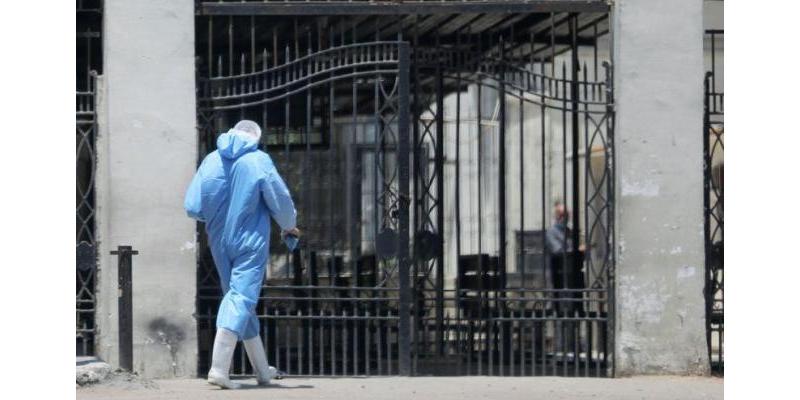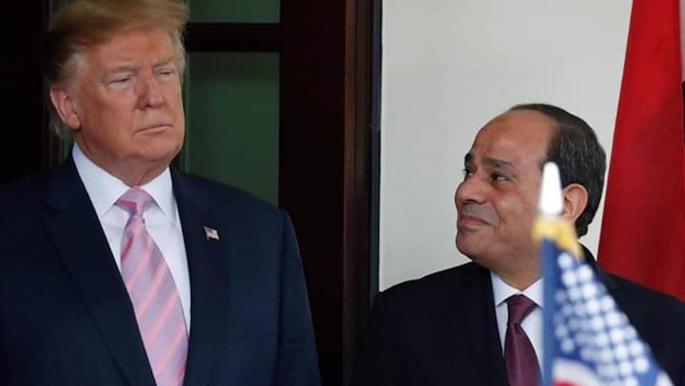The Egyptian government, represented by the Ministry of Awqaf, stormed the field of selling and collecting sacrifices’ Sukuk and leather during Eid Al-Adha seven years ago, in intense competition with the charitable societies that were playing this role.
The Ministry of Awqaf announced that the proceeds of the sacrificial Sukuk sales amounted to 30 million pounds so far, and that it will continue to sell Sukuk until the fourth day of Eid al-Adha, in addition to collecting sacrifices’ leather during the days of Eid at the headquarters of the Awqaf and Grand Mosques departments. The Awqaf strongly explained its intrusion into this field that it seeks to fight “terrorist groups” and to prevent the use of the proceeds of Sukuk and leather in actions harmful to the national interest, and “so that families do not have to resort to extremist groups, which exploit alms and sacrifices to spread their ideas and politically attract these citizens.”
Suspicions of corruption
However, the intense competition between the Ministry of Awqaf and charitable societies for the swag of Sukuk and leather was accompanied by a juristic (Feqh) debate regarding the legality of the sacrifice through the instrument, in addition to accusations of corruption related to the process of raising funds and distributing meat. The past years witnessed random crowds and distribution of meat and the endowment employees, local councils, and policemen in the various departments obtained a great deal of sacrifice meat of endowment Sukuk, which indicates that the poor do not obtain their rights.
The contradiction in the competition between institutions and societies is also evident in light of the talk about the absence of the poor in Egypt, which was the statement that the Director of the Orman Society made last year in front of al-Sisi, and was followed by the launch of a campaign to boycott the donation to the association. Many are wondering that former army leaders assumed the presidency of most charities and spent millions on ads on various satellite channels to promote sacrificing through Sukuk, reminiscent of what happened with the donations obtained by the Children’s Cancer Hospital, which are still under judicial investigation.
Is Sukuk religiously acceptable?
To the suspicions of corruption is added the jurisprudential debate between a number of scholars of Al-Azhar Al-Sharif and the Ministry of Endowments regarding the legality of the Sukuk, where Ahmed Kerima, from Al-Azhar scholars, believes that the instrument of sacrifice (Sukuk) is a waste of religious rites. He stressed that assigning the task of distributing the sacrifice to charitable bodies and organizations may lead to the sacrifice reaching the unworthy of it, which was revealed by some imams of endowment mosques, but the ministry did not open an investigation into the matter, but rather stopped them from work. It is striking that the Ministry of Endowments paid a special proficiency award to the endowment managers who achieved the highest rates of selling Sukuk and collecting leather.
Observers confirm that endowment ministry has encroached on the role of the Ministry of Social Solidarity, especially as it does not have official lists of the needy and the poor.
Sacrificial instruments
Prices of imported meat sukuk ranged this year between 1,800 and 2550 EGP for the instrument, while the price of the municipal meat instrument ranged between 3,100 and 3,500 EGP for the instrument. But the Ministry of Awqaf sells the instrument in the amount of 1,800 EGP “imported Sudanese meat”, the price of the municipal sacrifice instrument in the Egyptian Food Bank came to 3300 EGP, the imported sacrifice instrument at 1900 EGP, and charity meat 200 EGP (3 kilograms).
The individual’s share of the sacrifice of the municipal instrument is 9 kilograms, after he communicates with the institution to determine the date of receiving his meat, while the Orman Association announced that the (small) importer instrument amounts to 1950 EGP, the (large) importer instrument is 2550 EGP, and the municipal instrument is 3100 EGP. While the Misr Al-Khair Foundation set the price of the sacrifice instrument at 3500 EGP, in return for municipal meat weighing 27 kilograms, the donor would receive 9 kilograms and the foundation would undertake to distribute 18 kilograms.
Competition between the endowments and the various charities is not in the interests of the poor, according to observers, as aid is directed to those who are not always eligible in addition to its impact on the profits of workers in this field who are waiting for the season, like butchers and leather dealers. Added to this is the recession that struck the sacrifice market in Egypt, and the diminished ability of citizens to buy, due to the low incomes and high prices of meat.





Recent Comments